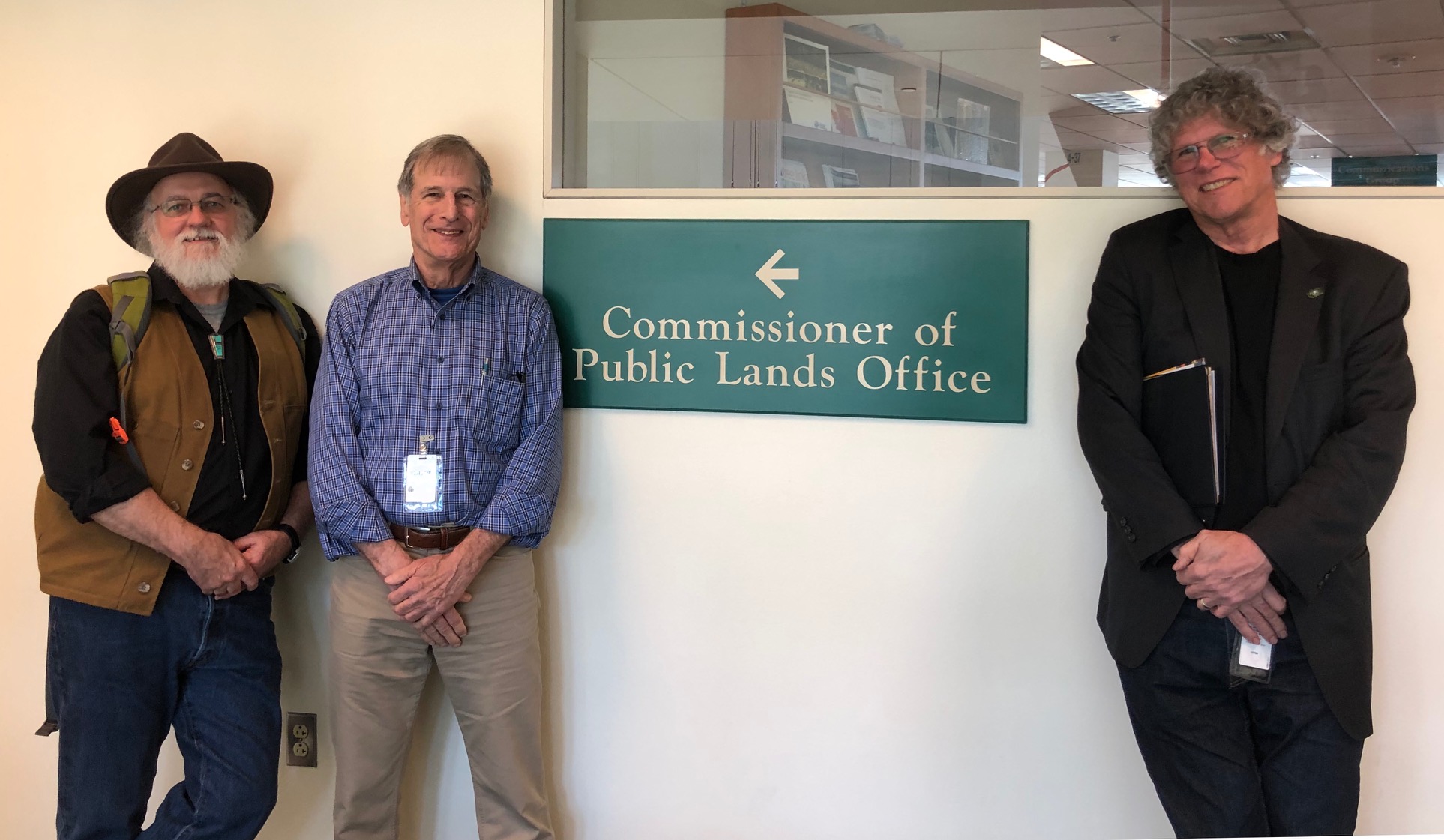
By Mike Town, State Forest Committee Leader
This legislative session was a mixed bag for ecological and conservation management of the state forests. Commissioner of Public Lands, Hilary Franz and the Department of Natural Resources (DNR) supported legislation and/or requested increased funding for several on-going and new scientific-based policies to better manage over 2 million acres of state forest lands. This included a bold proposal by the Commissioner to deal with wildfires and forests, protect critical areas, increase recreation, and explore the values of carbon storage and sequestration in state forests.
However, as aforementioned--the legislative session drew mixed results. Only some of the DNR’s bold propositions were fully funded while other programs received drastic budget cuts
Recreation opportunities and habitat protection were some of the biggest casualties. The revenue earned from Discovery Pass purchases, which are required to recreate in state parks and forests, was supposed to increase funding for recreation opportunities like hiking and mountain biking. However, starting next year, $750,000 of revenue from Discovery passes will now be redirected to the state’s general fund. According to DNR Recreation officials, the loss of revenue will have a significant impact on these outdoor opportunities.
The legislature also decided to fund only $6.4 million of the $35 million requested by the commissioner to protect state forests under park and natural area status through the Trust Land Transfer process. Other requests that did not receive full funding include requests for money to be allocated for sustainable recreation, road abandonment, the Forest Riparian Easement Program and the Puget Sound Corp (which supports ecological and restoration work for young people).
Despite these losses, there were also some positive outcomes from the legislative session. For example, a bill was passed to complete the Blanchard Forest, which after 20 years of work will protect 1600 acres in Skagit County. In addition, $375,000 was allocated to initiate a carbon inventory of state forests, and $48 million dollars was allocated for fighting wildfires and forest health treatments.
Now that the 2019-2021 session is finished, the focus for the state forest committee is to develop priorities for next year’s budget and develop a long-term plan for future legislation. So, if you are interested in helping the committee restore and increase funding for recreation and conservation on state forests please sign up below.